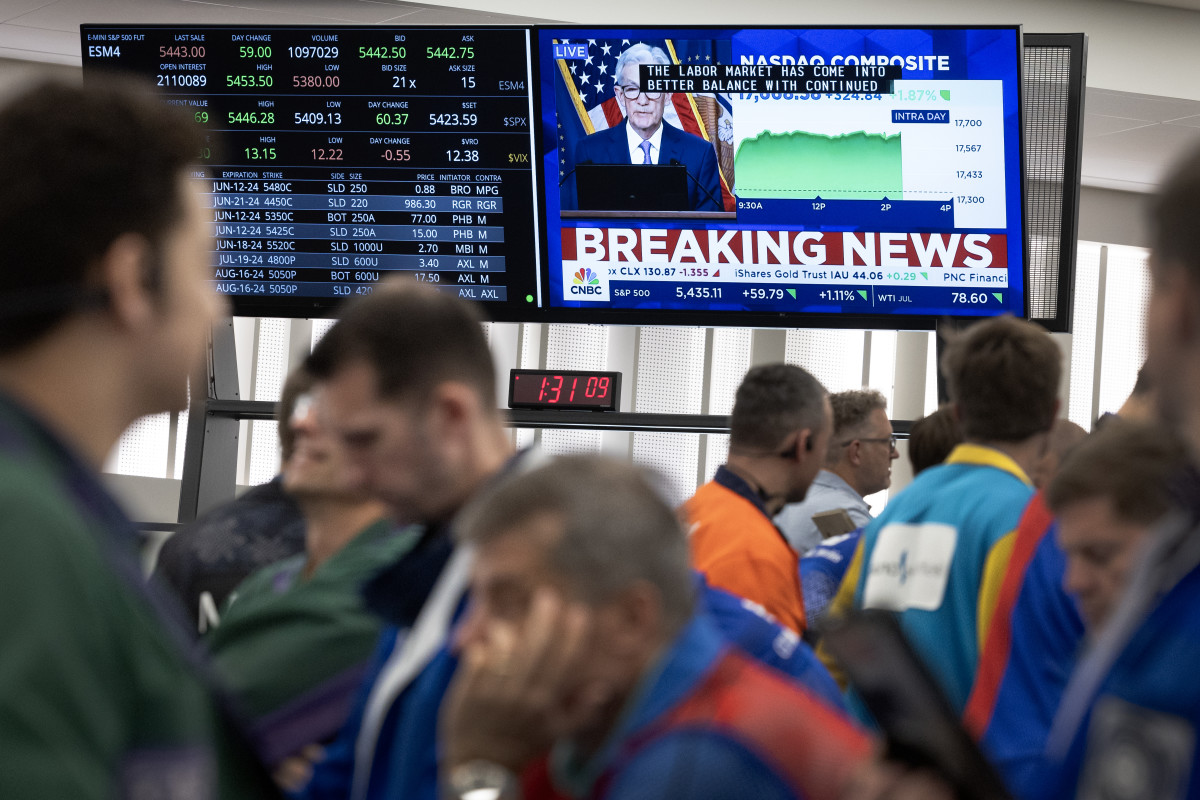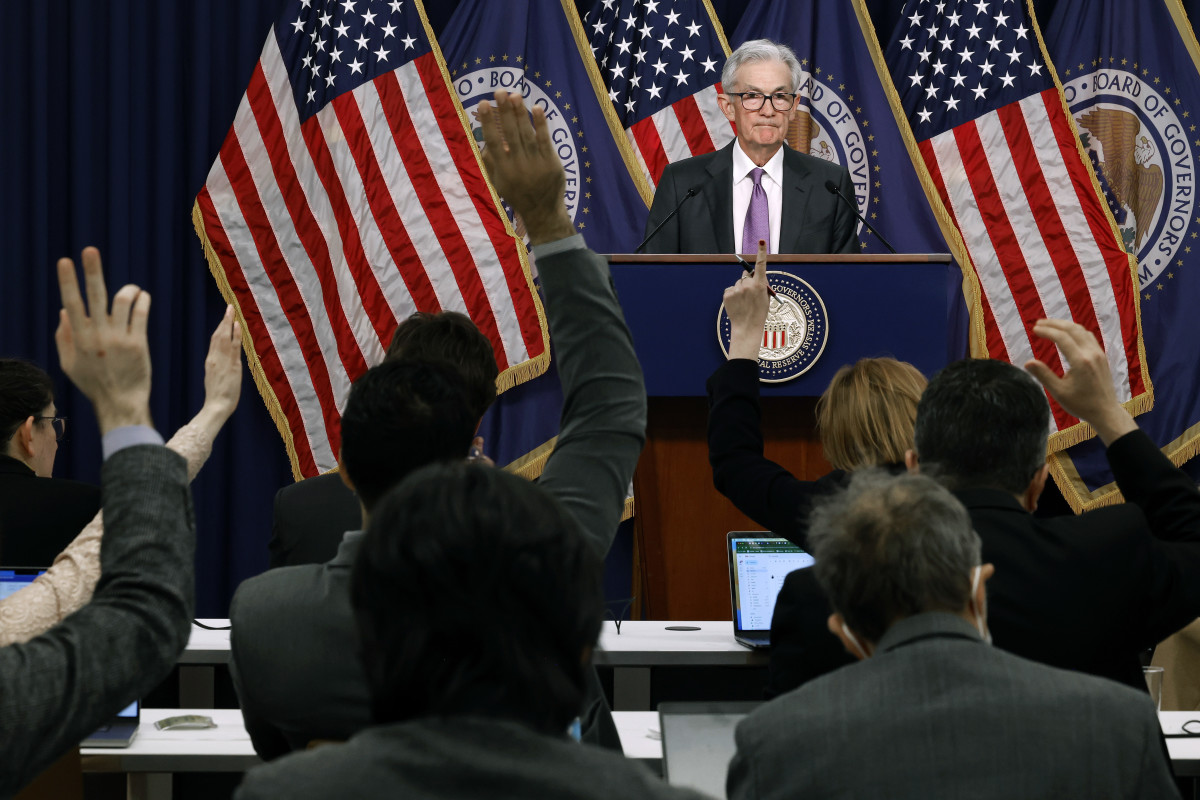
The Federal Reserve delivered an outsized interest rate cut Wednesday, while hinting at further reductions into the end of the year and beyond, and repeating its intention to focus on maximum employment in the labor market.
The Federal Open Market Committee, which sets monetary policy, lowered its key lending rate by 50 basis points, or half a percentage point, to between 4.75% and 5%, the first reduction since February 2020, following the central bank's two-day policy meeting in Washington.
The Fed's new Summary of Economic Projections, better-known as the Dot Plots, now suggests a Federal Funds Rate of around 4.4% by the end of the year, a level that indicates at least two more quarter-point reductions, and 3.4% by the end of 2025.
"The Committee seeks to achieve maximum employment and inflation at the rate of 2% over the longer run," the Fed said in a statement released alongside the rate decision.
"The Committee has gained greater confidence that inflation is moving sustainably toward 2 percent, and judges that the risks to achieving its employment and inflation goals are roughly in balance," the statement read. "The economic outlook is uncertain, and the Committee is attentive to the risks to both sides of its dual mandate."

U.S. stocks extended gains following the Fed statement and Chairman Jerome Powell's news conference, which began at 2:30 pm Eastern Time, with the S&P 500 last marked 30 points, or 0.53%, higher on the session.
The tech-focused Nasdaq, meanwhile, rose 152 points, or 0.87%, while the Dow was last marked 185 points to the upside.
Related: The Fed Dot Plot is more important than a rate cut today
Benchmark 10-year Treasury note yields were last marked 1 basis point higher on the session at 3.666%. Rate-sensitive 2-year-note yields, meanwhile, were little changed from prior to the statement at 3.592%.
"Unsurprisingly, and after much foreshadowing this summer, the long-awaited beginning of an interest rate cutting cycle is upon us," said Greg Davis, president and CIO at Vanguard.
Sign up for TheStreet's free daily newsletter.
"While this is the first occurrence of a cut since the pandemic, I urge investors to bear in mind that the rate-cutting cycle can lead to market volatility, so it’s important for investors to remain focused on their long-term objectives."
The Fed also trimmed its near-term growth and inflation forecasts, seeing GDP at 2% this year, down from the 2.1% estimate it published in June, and steadying in the 2% range for 2025 and 2026.
Headline unemployment, however, is likely to rising to 44% this year, a big jump from the Fed's June estimate of 4%, with forecasts of 4.4% and 4.3% for the following two years.
"This decision reflects our growing confidence that with an appropriate recalibration of our policy stance, strength in the labor market can be maintained," Powell told reporters in Washington following the Fed rate announcement.
"We don’t think we’re behind the curve and by moving by 50 [basis points] today, you can take this as a sign of our commitment not to get behind," he added. "No one should look at the 50 basis point cut and say this is the new pace."
The dot plot shows median estimates for the next few years. Looks similar to where market was priced ahead of the meeting. As usual, there is a wide dispersion of estimates. pic.twitter.com/gUh9WudVfM
— Kathy Jones (@KathyJones) September 18, 2024
Investors had been divided over the size of the Fed's highly anticipated cut following a series of muted summer inflation and jobs reports and comments from Chairman Powell that the "time has come" to lower borrowing costs during his address to the central bank's annual retreat in Jackson Hole.
Still, with the economy growing at an estimated rate of 3%, according to the Atlanta Fed's recently updated GDPNow forecasting tool, headline inflation easing to a three-year low of 2.5% last month and the unemployment rate holding at just 4.2%, the case for aggressive Fed action has been difficult to sustain.
Related: Goldman Sachs issues stocks forecast for next year
Inflation growth is not yet at the Fed’s target for price stability, the unemployment rate still hovers around 4%, and federal deficit spending continues to surge, said John Lynch, chief investment officer for Comerica Wealth Management in Charlotte prior to the Fed decision.
"In this environment, we believe the more prudent policy action is to withstand market pressure and proceed slowly with a quarter-point mover lower today, followed by moves of a similar magnitude over the next three to four policy meetings into early 2025," he added.
More Economic Analysis:
- Jobs report surprise adds to case for bigger Fed interest rate cuts
- Jobs report to signal timing and size of autumn Fed interest rate cuts
- Fed rate cuts may not guarantee a September stock market rally
Nancy Tengler, CEO and chief investment officer at Tengler Investments, thinks the Fed may have "jumped the gun" with its outsized cut.
"The economy is slowing but still strong. Productivity robust and unit labor costs moderate," she said.
"Unemployment may indeed rise but we are not seeing layoffs — JOLTs still a very large number, well above prepandemic levels," she added. "My criticism of the Fed has been a myopic focus on backward looking data. This feels like that. A single weak employment report and here we are."
Related: Veteran fund manager sees world of pain coming for stocks







